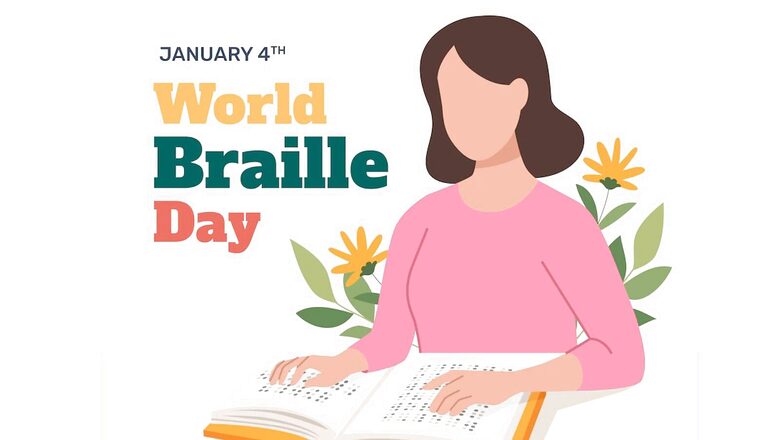
views
WORLD BRAILLE DAY 2023: World Braille Day, marked on January 4, emphasises the significance of Braille as a form of communication for the partially sighted and blind. The United Nations has been commemorating the day since 2019.
Braille is the most widely used tactile reading and writing method and it is named after the inventor, Louis Braille who used raised dots to frame out punctuation marks and letters. Individuals with visual impairment can write braille using instruments like the Perkins Brailler and read it with their fingertips.
World Braille Day also commemorates the birth anniversary of Louis Braille, who was born on January 4, 1809. After losing his sight during childhood, the French educator devised the Braille technique.
Let’s have a look at some interesting facts about the Braille code.

- Braille began as a military code known as “night writing” devised by French army soldiers in 1819 to interact at night without speaking.
- Louis Braille, a fifteen-year-old schoolboy, encountered the code and eventually produced the more accessible, simplified version of the braille alphabet currently in use.
- A cell in braille is made up of six dots, resulting in 64 braille cell combinations which can also include empty cells.
- Books written in braille are substantially larger than books written in the standard alphabet as braille takes up more space.
- The size of a Braille cell is similar to a 29pt Arial font. As a result, there are almost three times as many pages in the braille translation of ordinary print material.
- Braille used for mathematics is not the same as braille used for writing the alphabet. Nemeth code is the special system of Braille that is used for Mathematics.
- There is also a specific braille system for sheet music. The dots stand in for musical notes rather than letters.
- Although it is not a language, Braille is a tactile alphabet code that may be used to write practically any language.
- Chinese, Hebrew, Spanish, Arabic, and many other languages have braille versions available.
- While en route to take pictures of the Borrelly comet in 1999, NASA’s Deep Space 1 probe flew over an asteroid. In honour of Louis Braille, NASA named the asteroid “9969 Braille.”
Read all the Latest Lifestyle News here




















Comments
0 comment